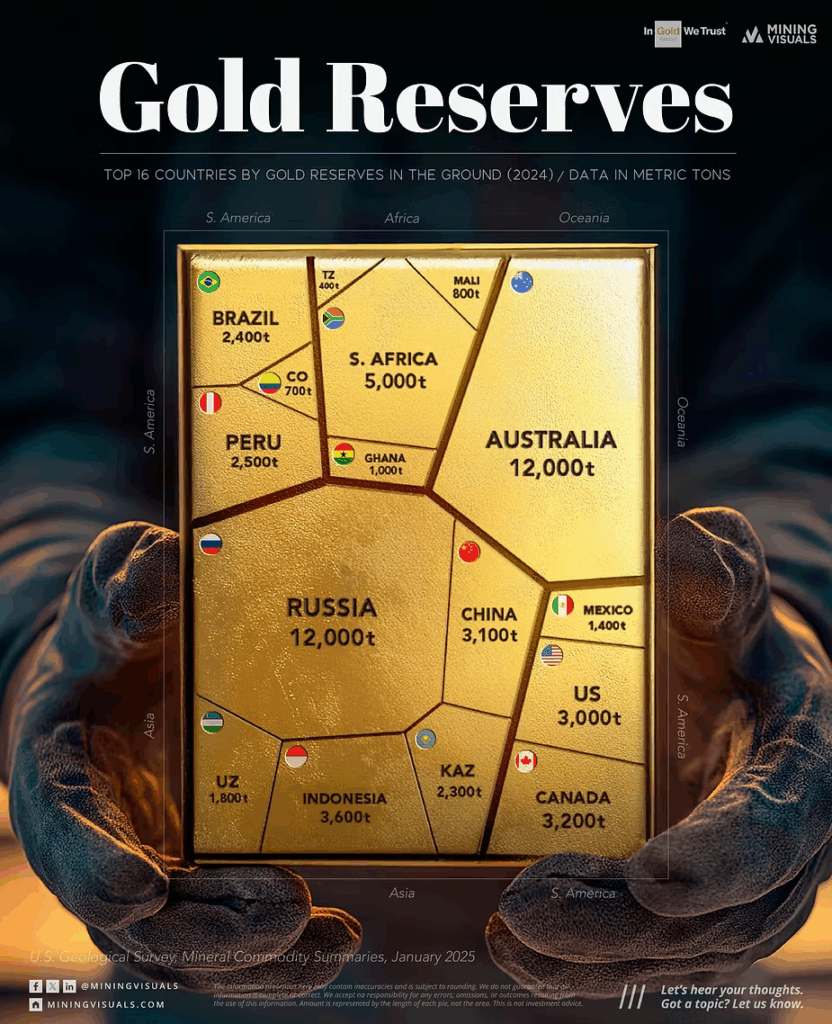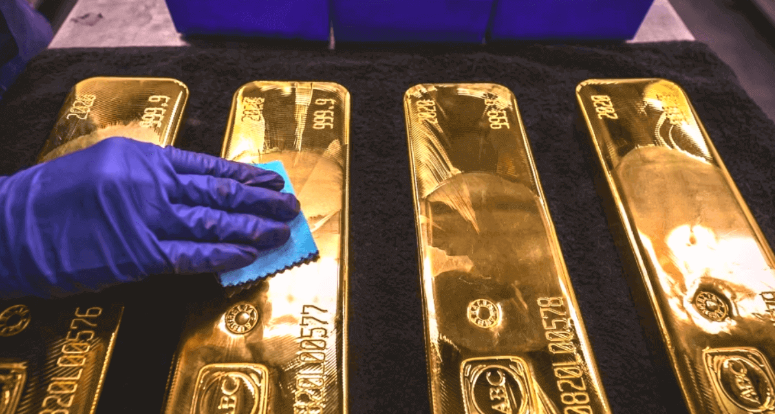💰Gold has long ceased to be the basis for currency, but it remains one of the most valuable and sought-after resources worldwide. It is used as an investment asset, in jewelry, and in high-tech industries, including electronics and medicine.
Although many countries have significant gold reserves, some states have almost none or virtually no mining.

According to geological studies, countries with limited gold reserves include Libya, Belarus, Paraguay, Lithuania, and Latvia. In these countries, there are no significant deposits, so gold mining is either absent or at a very low level. For these economies, gold does not play a key role.
On the other hand, some countries have gold deposits, but mining is minimal or not yet organized. These include Pakistan, the Central African Republic, and Afghanistan. In Afghanistan, for example, the deposits are quite large but remain unexploited due to complex political and economic situations.
Interestingly, for many years it was believed that there is no gold in Antarctica. However, new geological studies suggest that deposits may exist, but mining is entirely prohibited by international agreements to preserve the unique ecosystem.

For comparison: the total amount of gold ever mined in history is estimated at approximately 201,296 tons. Of this, nearly half — 93,253 tons — is used in jewelry, about 17% in industry, and the rest is held as investment and national reserves. This shows that gold is valuable not only as decoration but also as a strategic resource.
🏔️ In conclusion, although gold is widely distributed and important for the global economy, there are countries with minimal reserves or untapped deposits. For these states, gold is more a promising resource for the future than a real economic asset today.
All content provided on this website (https://wildinwest.com/) -including attachments, links, or referenced materials — is for informative and entertainment purposes only and should not be considered as financial advice. Third-party materials remain the property of their respective owners.


